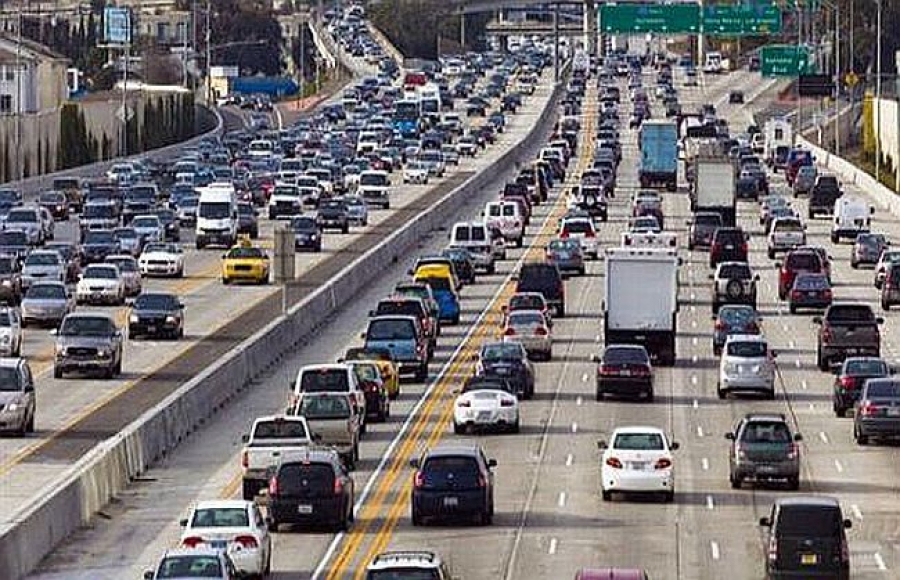Traffic congestion, overcrowded public transit and Toronto's Land Transfer Tax are combining to make life more difficult for the region's residents -- and costing them millions of dollars, REALTORS® attending a Toronto Real Estate Board (TREB) event were told recently.
The board reached out to local governments and policymakers to ask what they are doing about issues of mobility and traffic congestion.
"Everywhere I go in this city, people tell me that traffic and congestion remain their number one issue," says Toronto Mayor John Tory in a statement sent to TREB. "That's why addressing traffic and transit continues to be one of my key priorities."
These initiatives include accelerating road construction projects to get work done faster, increasing enforcement on illegally parked vehicles during rush hour and better management of road closures. "We've moved marathons, co-ordinated construction projects and injected a good dose of common sense into the whole process," says Tory.
Public transit in the Greater Golden Horseshoe region has failed to keep up with the explosion in population and residential development in recent decades. A report by the C.D. Howe Institute, presented at the TREB event, says, "Anyone who has followed transportation debates in the region has seen a lack of political will to reduce congestion. The province quashed Toronto's plans for road tolls, and politicians can't decide on where to build new transit."
A recent study of young professionals by the Toronto Region Board of Trade found that "commute times across the region are depriving them of time with family and friends, which as our survey shows, is a major factor influencing their housing decisions," says Jan De Silva, president and CEO of the board. "As the city and region continue to grow, connected communities with an array of amenities will be key to ensuring our talented young professionals want to and can work here."
The survey found that 76 per cent of young professionals ranked commute to work as the most important factor when choosing a home. Sixty-five per cent of respondents said they would purchase a "less ideal" home or rent to be closer to work, while 77 per cent said they would consider living further away if they had better access to public transit.
The C.D. Howe Institute report blames Toronto's Land Transfer Tax for making congestion worse.
"The tax tends to reduce the moves within a city rather than longer-distance moves or job changes," it says. "That means the economic cost to homeowners of transfer taxes is when they have to suffer through growing traffic congestion year after year to get to their same job because they can't afford to move closer.
"Land transfer taxes exacerbate what we call the hidden economic cost of congestion when people decide to make a trip," says the report. "The hidden cost of congestion is that workers do not take jobs that are the best fit for them. Companies lose out, because the pool of workers they may draw from is shallower than otherwise."
The institute estimates these additional costs to be "at least $1.5 billion and as much as $5 billion per year in lost wages."
The cash-strapped City of Toronto isn't about to give up the Land Transfer Tax soon -- it is hoping to collect more than $800 million from the tax in 2018. But the C.D. Howe research says the "estimated dollar value of lost mobility is about 13 per cent of every dollar of revenue that the LTT generates for Toronto's coffers."
Among other things, the institute advocates the introduction of high occupancy tolling lanes, in which drivers who want to travel a little faster will have the option of paying for that privilege.
De Silva says the Toronto Region Board of Trade was "excited" when the City of Toronto voted to start tolling two local expressways and were then disappointed when the idea was rejected by Ontario Premier Kathleen Wynne.
"The road tolls got us all fired up," De Silva told the TREB audience. "We decided that we've got to start thinking boldly (about the issue)."
That led to the board's proposal to form a single provincial agency called Superlinx. All transit planning, construction, operations and real estate commercialization in the region would be uploaded to the new entity, eliminating the existing 11 transit authorities. The proposal would maximize land use for housing, commercial and public services, says the board.
It says the initiative could result in annual savings of more than $93 million for the City of Toronto and savings of $7.4 million for Hamilton and $13 million for York Region.
In addition, "for the region's transportation plan to be successful, our primary focus on moving people must expand to include the efficient movement of goods, and until there is collaboration, better data and policy alignment across all levels of government, congestion will be a major impediment," says De Silva.
Congestion delays cost $500 million to $650 million per year in higher prices for goods nationally, says the board.
"Our products are not reaching their destination on time, which negatively impacts our productivity," says De Silva. "If we don't manage our competitiveness challenges, our economy -- like our goods and people -- will remain stuck in traffic."







